|
NEWSLETTER 10
22-12-2022
RESTART_4DANUBE NEWSLETTER DECEMBER 2022
RESTART_4Danube at the 11th EUSDR Annual Forum, Kosice, Slovakia
RESTART_4Danube Project has been presented at the celebration of 10 Years Jubilee of the Danube Transfer Center (DTC) Network, organized by Steinbeis Europa Zentrum/Steinbeis 2i GmbH in the frame of 11th Danube Annual Forum in Kosice, Slovakia on October, 19/20 2022. DTC Network includes 15 full Partners located in 10 Danube Region countries and serves as an excellent platform supporting the local development and transnational/international collaboration through the EU funded projects.
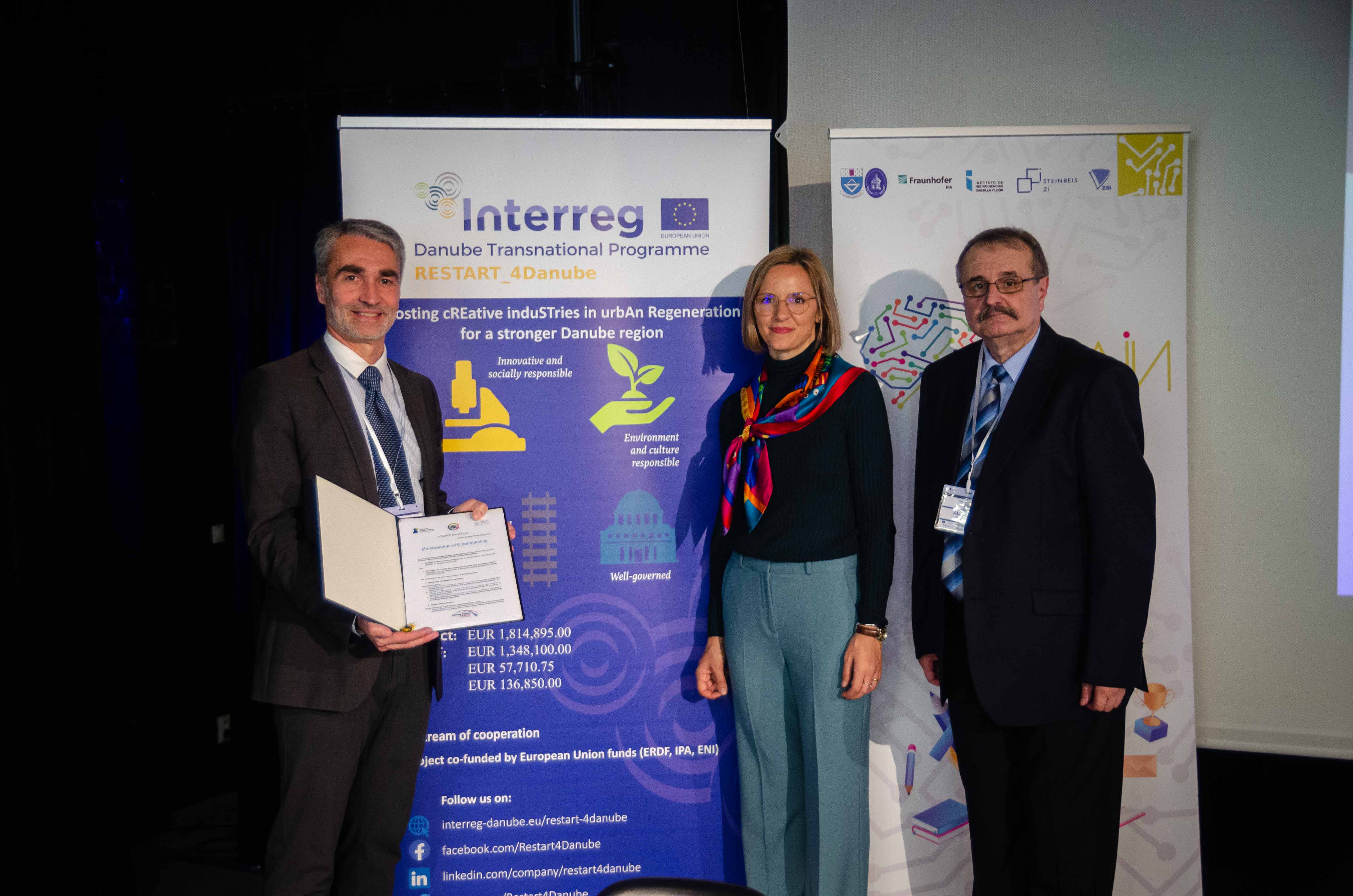
© Jakub Balaz
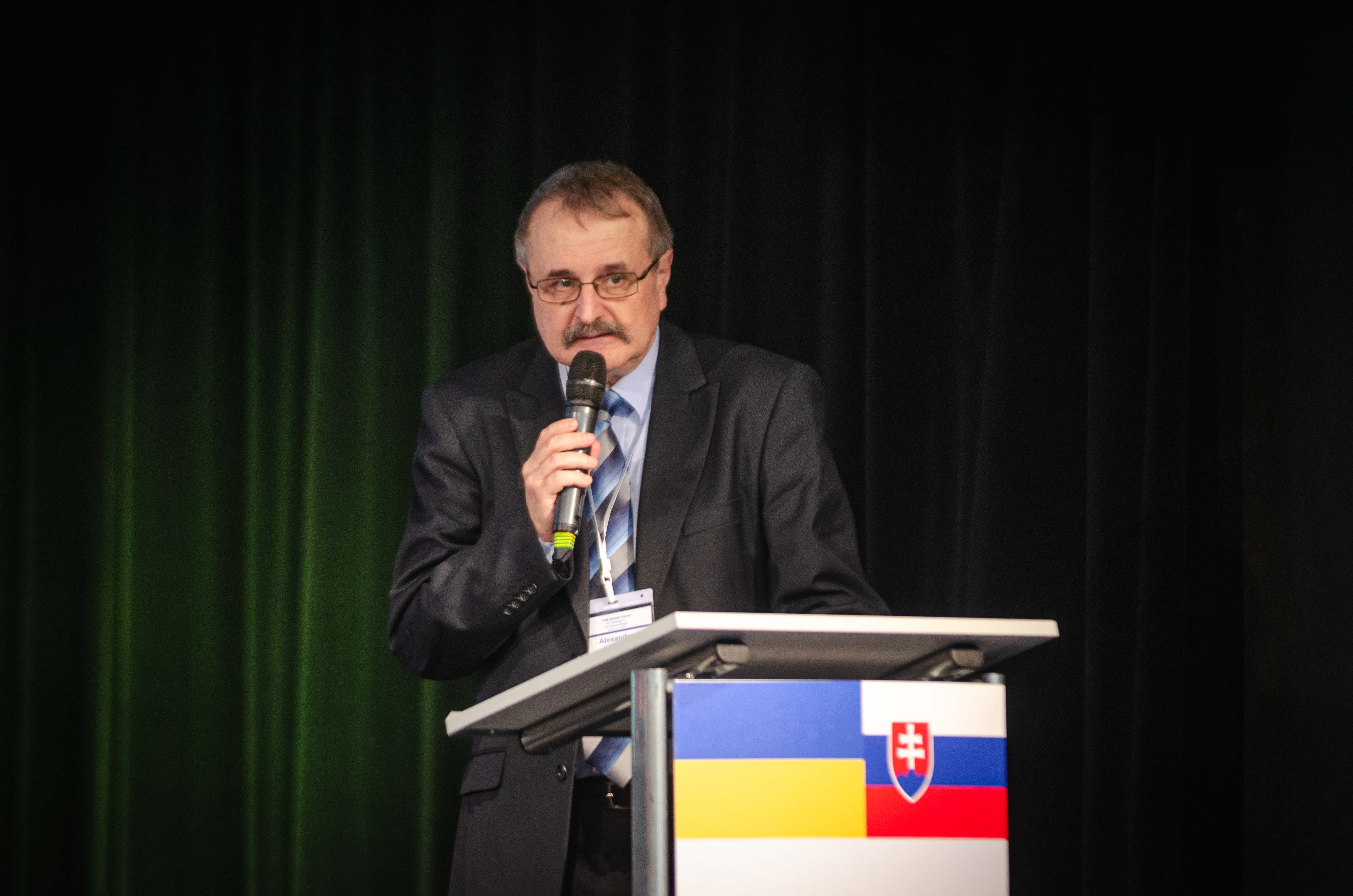
© Jakub Balaz
Lead by the RESTART_4Danube Lead Partner - University POLITEHNICA of Bucharest, Partners including Steinbeis 2i GmbH, School of Advanced Social Studies and University of Maribor had a great opportunity for personal exchanges and networking with the organizations and stakeholders from the whole Danube Region.
It has been a wonderful opportunity, after 2 years of on-line organization of EUSDR Forum, to meet in person again and discuss about the future of the Danube Region. As a highlight, the new Danube Region Programme has been presented by the Programme representatives. In this light, new ideas for innovative projects have been already created.
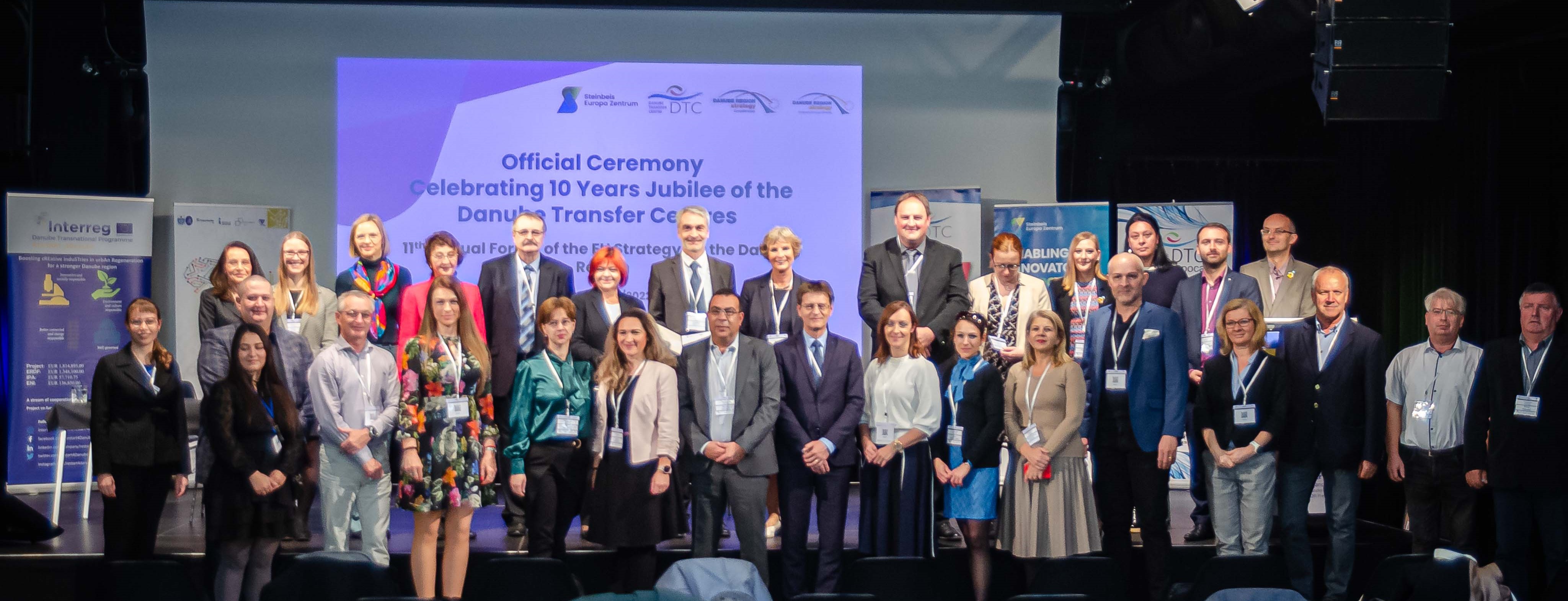
© Jakub Balaz
RESTART_4Danube Final conference - "Creative Urban Transformation", Chisinau, Moldova
The Public Institution Organization for Entrepreneurship Development (IP ODA), as implementing institution, organized in Chisinau, on November 18, 2022, the final conference of the RESTART_4Danube project themed: "Creative Urban Transformation".
The event, organised in a hybrid format, brought together around 100 participants from 12 countries from the Danube region. The Final Conference was attended by representatives of public authorities, experts, development partners and entrepreneurs within the cultural and creative industries (CCI).
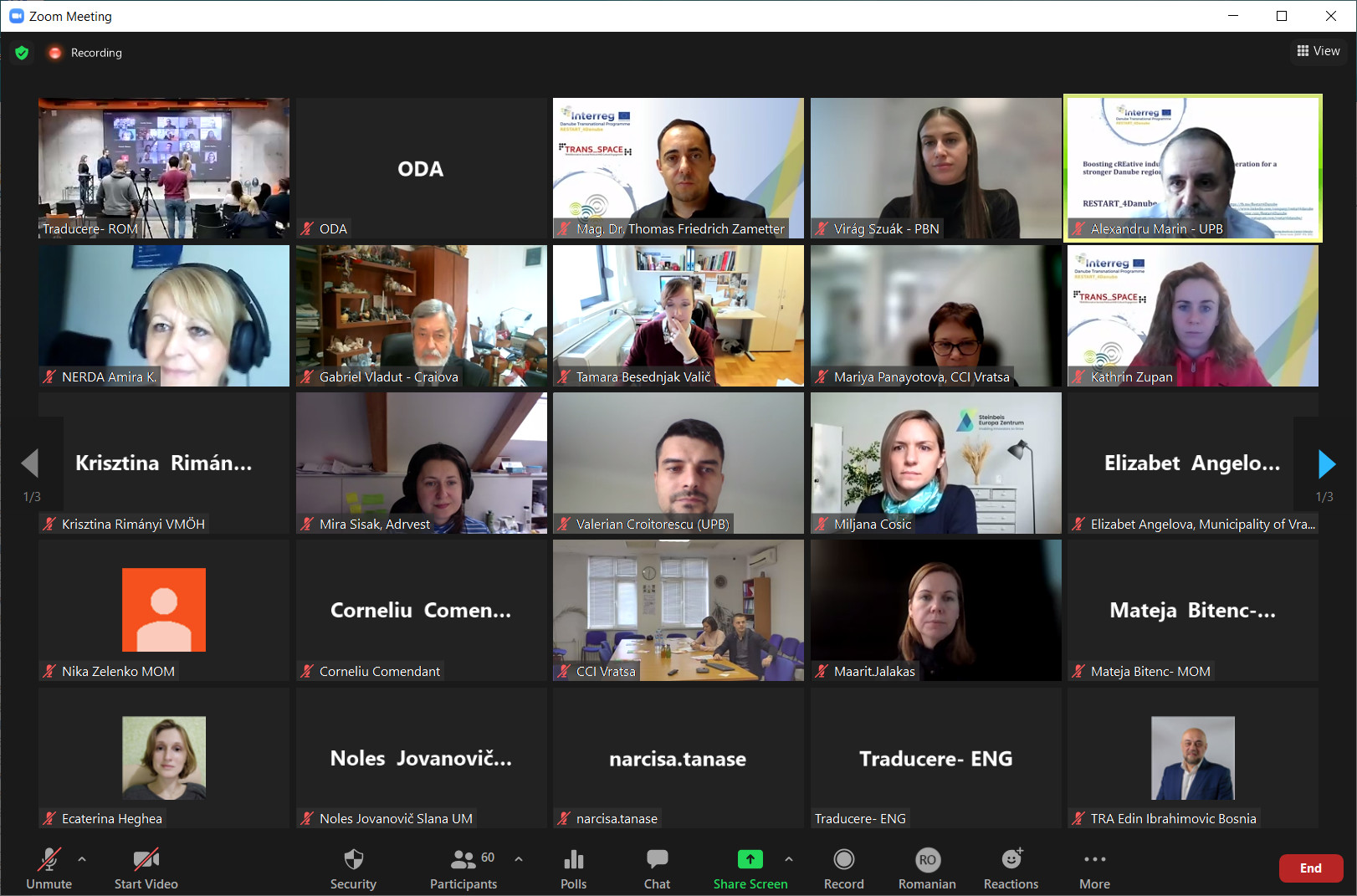
In the frame of the conference were presented the main results of the project, achieved during the 2.5 years of implementation.
Participants at the event had the opportunity to get acquainted with the vision and the 5 main areas of intervention described in the Strategy on Creative Urban Regeneration for the Danube region, presented by Miljana Cosic, Project Manager, Steinbeis 2i GmbH, Germany.
Another important policy document for the creative industries sector in the Danube region was presented by Dr. Thomas Zametter, Senior Researcher, Carinthian University of Applied Sciences, Austria - the Urban Green Paper, which provides an overview of the positive impact of the creative industries sector and the support mechanisms needed for its development.
Four case studies on creative urban revitalization from Croatia, Hungary, Bulgaria and Romania were highlighted during the conference.
In the second part of the event, participants were introduced to the creative industry in Moldova and the activity of two Creative Hubs in the country - ARTCOR and MEDIACOR. At the same time, during the panel discussion, national experts highlighted the importance of creativity in the process of identifying innovative solutions for community and urban development, as well as the contribution of international projects in testing and transferring new practices.
During the closing remarks of the event, taking into account the productive collaboration within the RESTART_4Danube project, several partners expressed their interest and openness to collaborate and establish new partnerships in the field of innovation, tourism, creative industry development and other relevant areas.
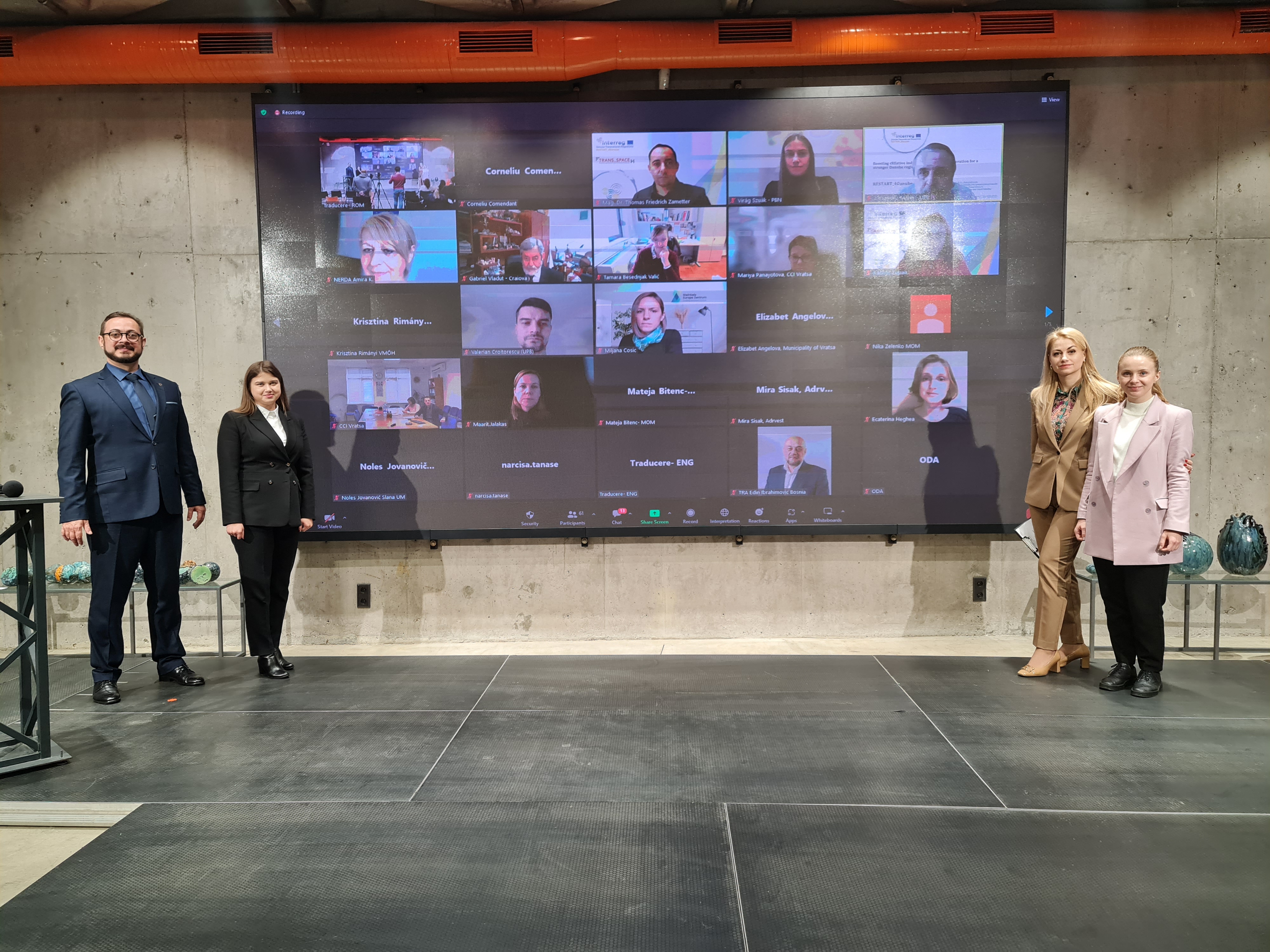
© IP ODA
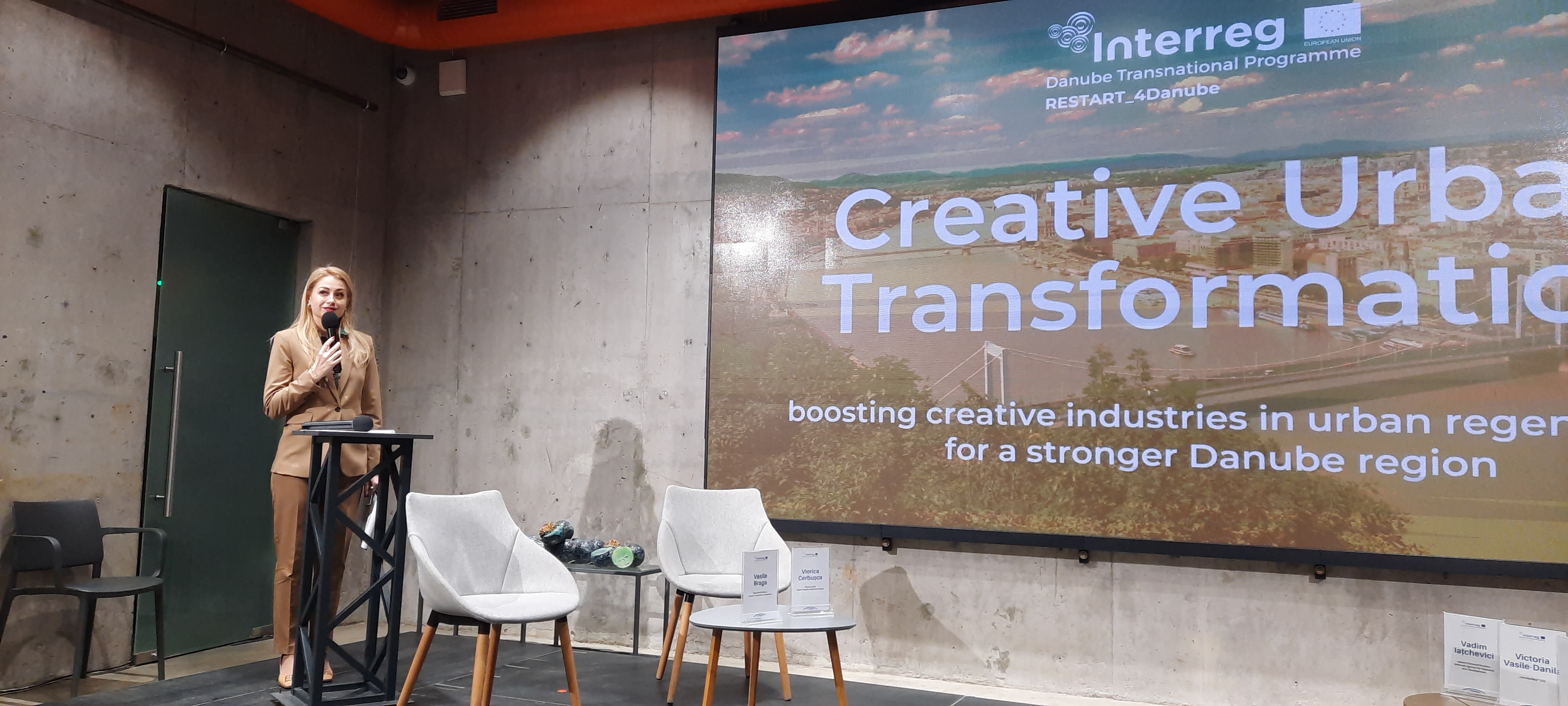
© IP ODA
RESTART_4Danube Policy Final event, Craiova, Romania
IPA Craiova participated and contributed with two presentations at the RESTART_4Danube Policy Final event, October 31, starting at 6:00 P.M., at the Ramada Plaza Hotel, Constantin Brâncusi Hall.
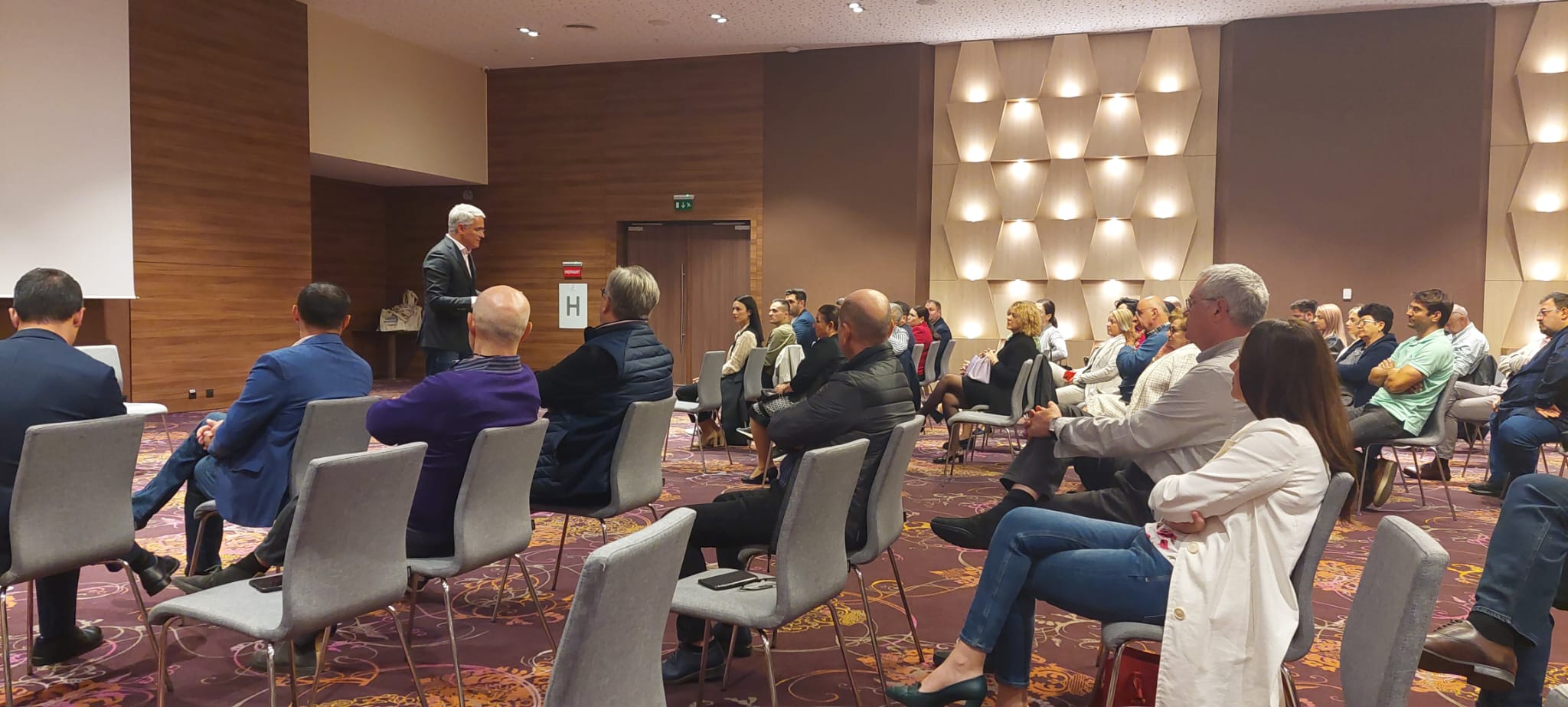
At the European level, we are going through a period of important transformation, marked by the green transition, respect for traditions and cultural heritage, digital transformation, by the need for strategic autonomy and a social balance that generates an educated and qualified workforce.
Romania has a huge opportunity at its disposal, both by implementing the PNRR reforms and by using investments from European funds of over 80 billion euros, Interreg Danube Strategy, Regional Operational Plan, International CDI Programs - Horizon Europe, cross-border Romania – Bulgaria and Romania, Serbia, Eureka/Eurostars, COSME, etc. In addition, through the REPowerEU plan, a series of financial and legal measures are to be taken to build the Cultural and Creative industry new infrastructure, and energy system that Europe needs, and Romania can be at the forefront. In this context, under the auspices of:
- the RENEW Europe group in the European Parliament
- RESTART_4Danube HUBs Network
- Strategy for development of Dolj County
- the Erasmus+ project, Interdisciplinary Cyber Training.
We invited Stakeholders (based on Triple Helix principle) to an open debate on the future of CCI in Craiova and Oltenia Region. The three presentations included:
- RESTART_4Danube and New spaces for experimentation, innovation and entrepreneurship in CCI sector; Local Action Plan
- RESTART_4Danube Network
- CCI funding and sustainable opportunity.
The presentations and applied discussions were held on several topics of great interest: "Potential of the Creative Sector and the Network opportunity", "Roman Heritage along the Danube. Sustainable protection & infrastructure measures", "Network, services and Connective Tools", “Funding and sustainability" and "Connecting People and Culture in a common and sustainable Strategy".
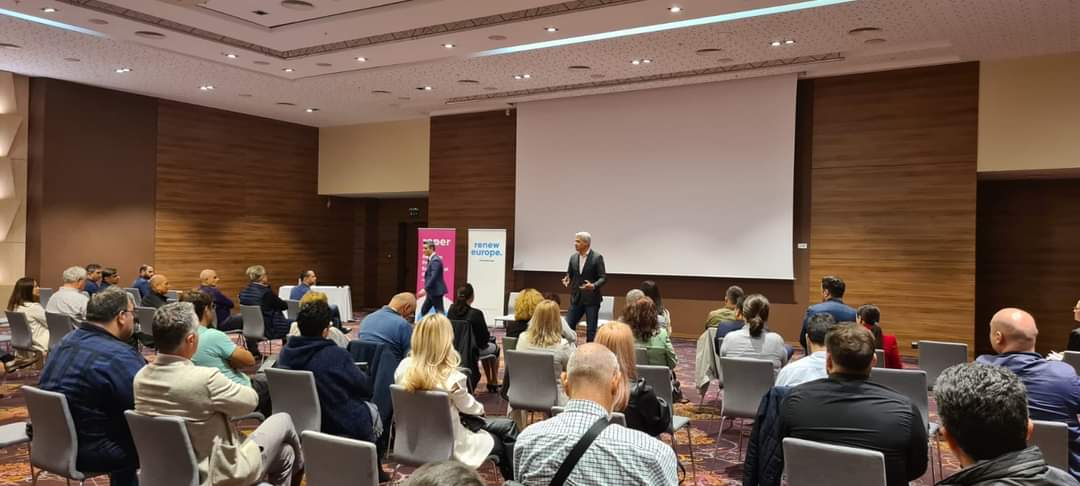
Smart tourism - 5 solutions for Romanian cities
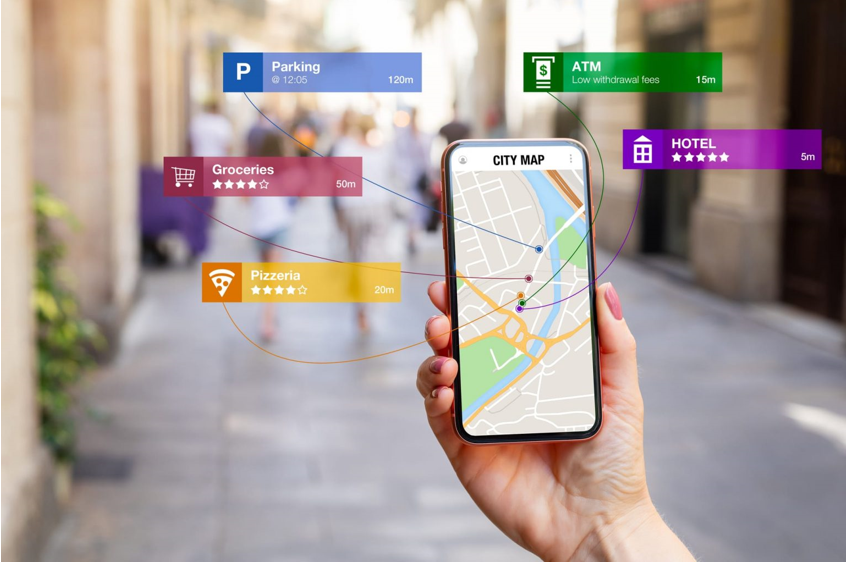
Tourism is an important resource for cities, one through which local personality and specificity are enhanced. What can a city do to make the most of its tourist potential and what solutions can it implement?
Since 2019, the European Union has launched the European Capital of Smart Tourism program with the aim of stimulating innovation in the field of smart tourism practices. Nine cities have been awarded to date, thus showing why initiatives in this sector are a winning bet for the community. We can mention the increase in competitiveness between destinations, the improvement of access to means of transport, the efficient management of the city's resources, the development of the local tourism ecosystem, the stimulation of economic agents active in tourism and the improvement of the quality of life for people.
Successful solutions in this field require a collaboration between the private sector and the public administration, requiring a multidisciplinary approach. In this article we bring five ideas that can optimize the tourism area of a city.
1. Digitization of the tourism offer
The first step is to bring the points of interest, tourist routes, attractions and experiences that the city has to offer in one place. The user of an online platform should be able to easily rent a room in one of the city's hotels after consulting the tourist offer and getting information about the place he wants to visit.
2. Self-guided tours
Mobile apps that offer city tours can change the way the tourist relates to what he sees. Regardless of where they are in the city, using GPS, the tourist will be able to access a tour that will guide them on certain routes, tell them the history of the place and suggest recreational activities nearby. The high degree of flexibility and customization of the experience offers more freedom to those who visit the city and value the local specifics.
3. Augmented reality
Increasingly used during the pandemic, augmented reality offers the possibility to see distant places through the mobile phone. However, there is also the possibility of using augmented reality right on the spot. How about opening the app, selecting a building, and having information about it or past images of the same place appear on the screen?
4. Chatbots
Chatbot is nothing more than an automated software that converses with the user and provides information after processing what is asked of it. It can be programmed to answer frequently asked questions or anything else you want to communicate. In practice, it can be used both to chat with tourists and to schedule trips, book hotel rooms, plane tickets and much more.
5. Internet of Things (IoT)
The Internet of Things has become increasingly discussed with 5G innovations. It refers to the interconnection of devices using the Internet to transmit and receive data to perform actions automatically. Related to tourism, a solution would be for the tourist to receive notifications when they approach a famous destination, informing them about the visiting schedule and the cost of entry. Of course, the possibilities are endless.
We have synthesized a short series of tangible solutions that can be relatively easily implemented by public administrations in partnership with the private sector. In Romania we talk about tourism in only a few locations, usually the big cities and a few holiday villages, which is incorrect for destinations that offer something special but do not know how to value their attractions. Technology and smart tourism help us tell the story of the places we live in and increase the quality of life for residents.
More information, you can find under: https://urbanizehub.ro/turismul-smart-5-solutii-pentru-orasele-din-romania/
RESTART_4Danube - Urban Green paper - Cities in the process of “creative” transformation
The CUAS team has completed the Urban Green Paper 3rd and final draft. Key results and findings have been presented at the RESTART_4Danube Closing Conference "Creative Urban Transformation" in Chişinău, Republic of Moldova.
Brief summary of the activities and content
The final draft of the Urban Green Paper is the result of a comprehensive, evolutionary development process and is based in parts on the 1st and 2nd draft from the past project periods. It is divided into three larger sub-areas. Part one is a general overview of the positive socio-economic effects, impacts and the potential of the culture and creative industries - majority at EU level and in selected countries of the Danube Region. It also discusses the challenges for Cultural and Creative Industries (CCIs) in a post-COVID era. This is necessary so that the sector can also play an active role in rebuilding the economy after COVID-19. Part two shows ways of strengthening CCIs through new framework conditions i.e. capacity building, the physical and digital infrastructure and the regeneration of places, the use of implementation of creative business incubation opportunities, clusters and networks, the importance of access to finance and at least the great importance of good governance processes to arrange strong positive spill-over effects for the whole ecosystem. Optimal framework conditions lead to a resilient and innovative CCI sector. This in turn strengthens socio-economic and environmental urban regeneration and development processes. The basis for that are the five Local Action Plans (LAPs) and their good examples developed by the partners. In addition to the examples, this part also focuses on the implementation status of the set target goals and actions. Cultural and creative industries also support the achievement of the Sustainable Development Goals (SDGs) and the Agenda 2030, which is why the Urban Green Paper links the LAPs to the SDGs, in order to display the possible connections. The third part presents recommendations for action – to strengthening CCIs - in a compact form and summarizes the introductory Urban Green Paper once again. The paper shows an accumulated knowledge of all the periods from the project RESTART_4Danube in a compact, easily and understandable form.
Key data of CCI sector
Before the COVID-19 pandemic, CCIs employed over 7.6 million people in Europe. CCIs create a 643 billion EUR turnover and an added value in 2019 (4,4% of the EU GDP). 48% of jobs in CCIs held by women. Forecasts predict that the CCI sector has a growth potential by over 40% by 2030. In 2021 venture capital investments worth 88.1 billion euros were made in “creative” start-ups – this is an increase of 141% compared to the previous year and a new record. The cultural and creative industries (CCIs) are among one of the fastest growing sectors in Europe's economy.
Future perspectives
Cities and regions have to face new challenges in the future i.e. digitalization, demographic change, climate change, qualitative growth and sustainability or social cohesion and a peaceful
coexistence. We cannot continuously maintain the status quo in urban development. The quality of life in particular is increasingly becoming a decisive location factor in the Danube region as well. We cannot go back to “business as usual!” Key challenges cannot be solved with conventional methods. Comprehensive creative processes are needed.
The Urban Green Paper presents a large number of concrete ideas to strengthen (entrepreneurship of) CCIs via improving the framework conditions and how they can be more integrated into urban regeneration processes.
The CUAS team would like to thank you for the good and friendly cooperation within the exciting RESTART_4Danube project. We hope that the Urban Green Paper will also be used for further projects by all interested parties and that it will continue to be used in the interest of sustainable development.
For more information, visit our RESTART_4Danube website:
http://RESTART_4Danube - Interreg Danube (dtp.interreg-danube.eu)
or download the dedicated presentation under:
https://forschung.fh-kaernten.at/trans-space/files/2022/11/RESTART_4Danube_Green-Paper_-CUAS_-Zametter_Final_Conference_18112022_final.pdf
If you have any questions, please do not hesitate to contact us and visit CUAS research group website TRANS_SPACE under:
https://forschung.fh-kaernten.at/trans-space/
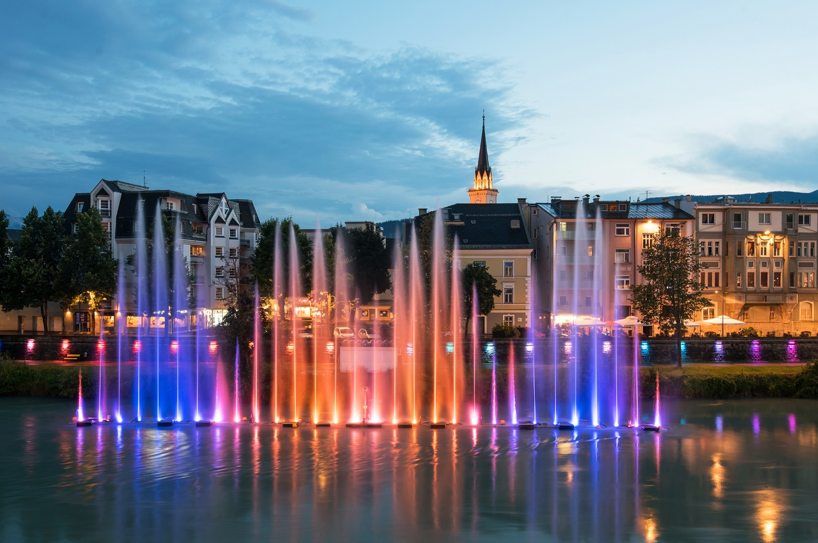
©Stadt Villach/Adrian Hipp
Photo description: Creative industries, tourism, innovation and quality of life in interaction. Water fountains with unique images, colours and musical accompaniment - that is the drau.puls in Villach
More information under: https://www.visitvillach.at/de/draupuls-wasserspiele-in-villach.html
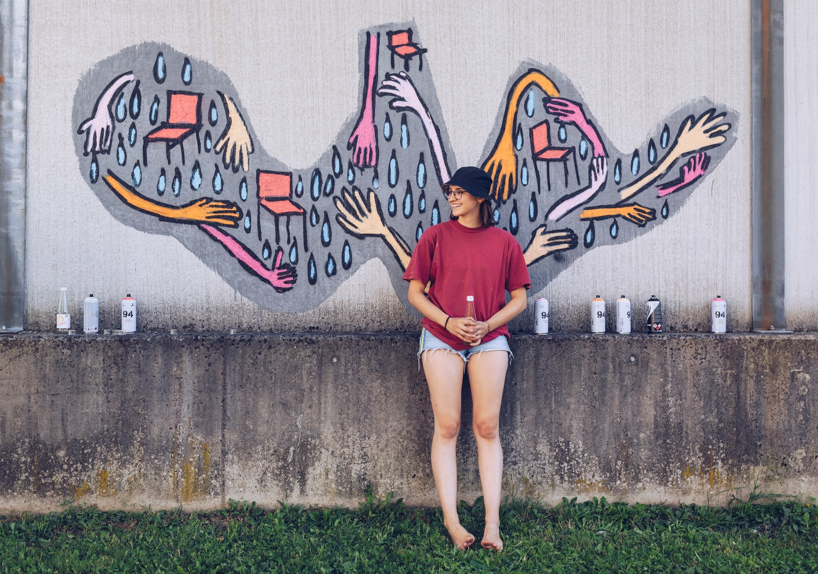
©City of Villach/Marta Gillner
Photo description: Another street art project with Villach's creative youth scene at an approved graffiti area in Villach's city centre/Richtstraße
The lights on the Christmas tree in Vratsa were lit
On December 1, 2022, the festive program for lighting the Christmas tree in the city of Vratsa began with a festive procession. The column led by Santa Claus and the snow girl included children and students, who together with their parents passed through the central pedestrian zone in the sounds of Christmas music performed by the brass band of the National Community Center "Development". This year, the white-bearded old man arrived with a carriage modeled by the Vratsa manufacturer Mito Orozov.
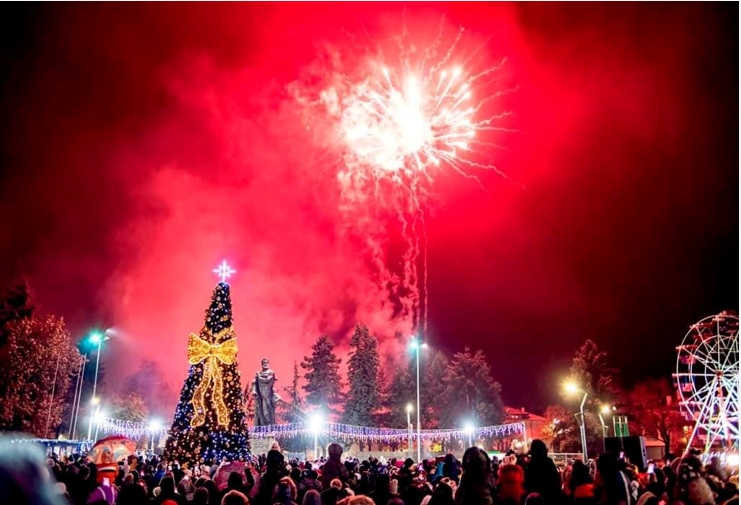
The celebration continued at Hristo Botev Square with a welcome speech from the Mayor of Vratsa Kalin Kamenov and after that the lights of the 10-meter Christmas tree were lit and a solemn dawn took place that lit up the sky above the square.
Children and students from local kindergartens and schools took part in the festive program to perform songs and poems dedicated to the Christmas and New Year holidays.
HAPPY HOLIDAYS!
With a great joy, RESTART_4Danube Consortium is wishing you a wonderful holiday season!
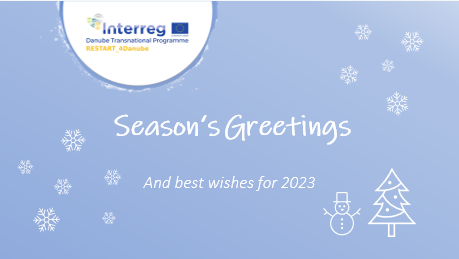
As the end of the Project is approaching, we warmly thank to all our Partners, Stakeholders, Newsletter Readers and Social Media Followers for the collaboration, exchanges and interactions in the last two and a half years!
We hope you enjoyed reading our Newsletters and we are sure - we will meet soon again and discuss more on Urban regeneration and Cultural and Creative Industries in the Danube Region!
|
